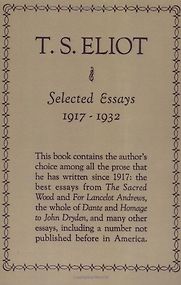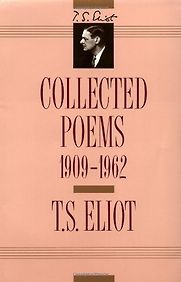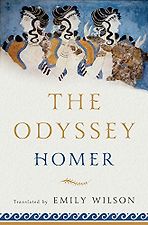Recommendations from our site
“It’s not a biography of Dante in the ordinary sense, and I don’t think Eliot thought of it as such. I chose it because he sets out a schema that was of huge importance to Eliot’s life and achievement. You don’t have to have read Dante’s The Divine Comedy to know that the inferno is followed by purgatory followed by paradiso. Eliot argues that this is a universal life and a universal pattern, and he wanted to tap into that pattern. It’s the schema of a life which moves from a sense of sin to an awareness of a broken-down life – a Waste Land life – and which moves deliberately through a purgatorial phase of suffering. One could say the equivalent was Eliot’s poem “Ash Wednesday”. In some sense Eliot remains a purgatorial poet, always looking towards a paradiso that he didn’t attain. He shared with Dante that sense of sin and introspection. Dante was, to him, the greatest exponent of the soul’s journey.” Read more...
Lyndall Gordon, Biographer








